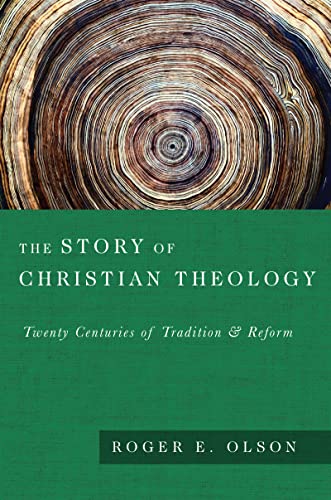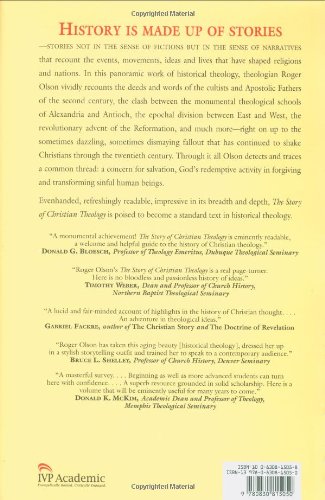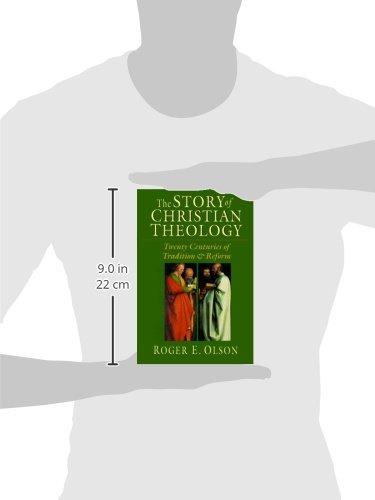



Full description not available
A**R
I'm learning a lot, although I don't agree. Here I come, gnosticism
I am reading this book to see if I can understand why my ancestors were Christian. I believe they were Christian because they had no other choice.page 39, in "Critics and Cultists Cause Confusion":"Out of conflicts with these and other heresies and critics, second-century Christianity began to formalize and institutionalize its faith and life. It is easy to decry some aspects of that formalization process. Some would say that with it a lot of the life went out of Christianity. That may be true. However, once the threat to the gospel constituted by Gnosticism, Celsus and Montanus is fully understood, it is more difficult to criticize the responses of the church fathers."Sorry, it's not more difficult. If orthodox Christianity were valid (as this very-Christian author believes), it wouldn't need defending -- then, now, or future. Church fathers arranged things so to make themselves bosses, then and now. Orthodox Christianity is all about AUTHORITY. This book is helping me see that Gnosticism, in some form that exists today, is the way to go. Heaven forbid you find a contemporary Christian meditating in a cave. I'm beginning to -- finally -- understand why traditional churches are stumbling: they are tripping over their own authority -- they need to fall flat on their faces, lest them remain arrogant, forcing their worldview on humanity. Take the boss out of Christianity, and maybe you'd have something.To me, Jesus will always be Jess. Jess has come to me in dreams several times, directly, without a priest, without a pastor, without a reverend, without communing with Christians per sé. Jess (and his like) speaks directly to, and has been seen by, many people over millennia, and refuses to be ignored -- I, and people like me, are the real Jessians. The "alternate" Jess keeps popping up like weeds. Yet orthodox Christians continue to ignore, or more accurately termed, insist on "consciously choosing to BE ignorant."Orthodox Christianity is about "putting words into dead people's mouths": you can make a dead person say anything. Who is there to say otherwise? Orthodox Christianity honors what the dead were supposed to have said more than what the living then said, and say now. After all, Jess was alive when he said what orthodox Christians say that he said.I am not boxed in like my ancestors. I get to choose my religion. My ancestors died to give their descendants, like me, a choice to reject orthodox Christianity without feeling threatened anymore; my ancestors died so that I can move away from the Christ-cult and find something more honest. This ancestors' descendant says "Gnosticism, here I come! Wherefore art thou?"
R**E
Great Foundational Book
If you've ever wondered how the major pieces of Christian theology --things like the Trinity, Predestination, and Baptism-- you will find them here. Dr. Olson, a historian by trade, takes on the places, times, and movements that developed and hardened the Christian doctrines we know today. Essentially, this book follows a strictly chronological format, starting from the birth of the Church in the book of Acts, and carrying through to the split of the Fundamentalist movement and Reformed theology in the 20th Century.The first section deals with the fundamental heresies that came in with the founding of the Church by examining the writing of the Patristic Fathers, the Apologetic Fathers, and then focusing specifically on Irenaeus. Here the fundamental issues of the nature of Christ in his incarnation were initially resolved. Of course, many of these issues have risen again in recent time with the formation of heretical branches of Christian thought, such as the Jehovah's Witnesses and the LDS Church.The second section deals with the unity of the Church which is primarily founded on the conversion of Rome to a Christian state. While Dr. Olson does a good job of explain the good results of the unity of the Church, he doesn't cover the concerns of those Christians who objected to the sacralism of merging the state and church, and using state power to impose consistency of theology.The major argument over the nature of the Trinity is dealt with in the fourth section, and the fifth returns to the nature of Christ. Section five describes the split between the Eastern and Western church over the issue of the procession of the Spirit --does the Spirit proceed only from the Father, or from the Father and the Son. According to Dr. Olson, the theological quarrel was founded on different views of the place of Scripture and hermeneutics.Martin Luther, John Calvin, and the Reformers are covered in the seventh section. Dr. Olson provides good insight into the relationship between the various Reformers, laying the groundwork for the ultimate split of the Reformed movement described in section eight. The author's ability to lay out the relationships in this section provides a very easy to understand historical picture, though he tends to downplay the role and objections of the Anabaptists, and the sacralizing power grounded in Constantinian Christianity.In the final section Dr. Olson discusses the split between liberal and conservative Christianity, the split between fundamentalism and mainline Christianity. Some of the most interesting pieces he discusses here relate to the role of Billy Graham's ministry, and the role of various schools, strong personalities, and even the impact of scientific thinking in this era.A long read, but a good basis from which to reach out and investigate Christian history and theology.
T**N
Brilliant
This is a brilliant book. It might sound heavy but the author makes the subject an easy read. He picks great quotes to help illustrate his points. Overall a really enjoyable read.
P**R
Five Stars
very interesting
A**R
A textbook for an online course I'm currently doing. ...
A textbook for an online course I'm currently doing. Readable and thought provoking. Provides the background for the development of thinking in Christian Theology which also follows by contrast and analogy the development of thought and culture in the west. Not a book to finish quickly!
J**.
Superb
A superb and thoughtful thesis on Christian theological history. Well done and well written by an 'honest' theologian. Highly recommended!
G**K
Five Stars
Great book.
Trustpilot
1 day ago
2 months ago